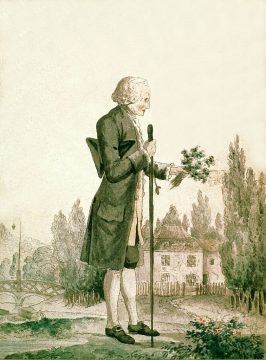Justin E. H. Smith in his Substack Newsletter:
 You will recall that while I carried on and on about myself in the first missive, I also promised that in subsequent instalments the autobiographical dimension would fall away, and the person behind the writing would for the most appear only indirectly. And yet I have in the past weeks consistently inserted myself, the author, into every topic I have touched. Why do I keep doing this? Is this not a variety of self-absorption? And if so may we perhaps distinguish between vicious and virtuous instances of what is ordinarily taken to be an unmitigated vice?
You will recall that while I carried on and on about myself in the first missive, I also promised that in subsequent instalments the autobiographical dimension would fall away, and the person behind the writing would for the most appear only indirectly. And yet I have in the past weeks consistently inserted myself, the author, into every topic I have touched. Why do I keep doing this? Is this not a variety of self-absorption? And if so may we perhaps distinguish between vicious and virtuous instances of what is ordinarily taken to be an unmitigated vice?
I believe Jean-Jacques Rousseau can assist us in answering this question. I have been reading his Confessions these past weeks (completed in 1770, published posthumously in 1782), and have found this work surprisingly helpful for understanding Rousseau as a thinker. Over the years I’ve taught The Social Contract a number of times; I read La Nouvelle Héloïse (1761) a long time ago; and more recently, inspired by Pankaj Mishra’s interpretation of the dispute between Voltaire and Rousseau concerning national sovereignty and empire in Eastern Europe, I’ve had occasion to read the latter’s Considerations on the Government of Poland (1772).
I basically share Mishra’s view that Rousseau is a crucially important counter-Enlightenment figure before this tendency found its more familiar home in Germany, and that the debate with Voltaire over the fate of Poland is therefore key to understanding what has been at stake in numerous instances, over the subsequent centuries, of conflict between the pseudo-universalism of hegemons, on the one hand, and local demands for self-determination on the other, between the imposition of external power under the guise of an objective norm and the preservation of organic folk-ways. In this conflict, I generally have more sympathy for the side defended by Rousseau, and I take Voltaire to be a disgraceful apologist for imperialism.
More here.
